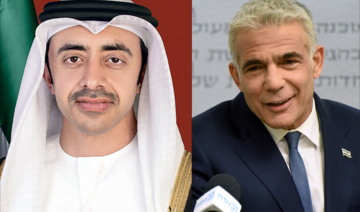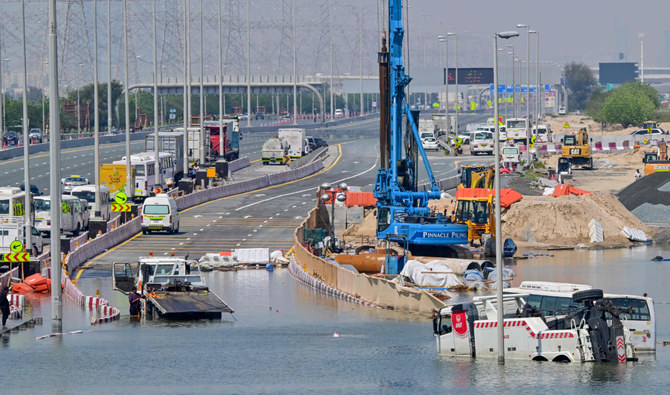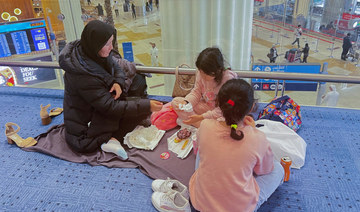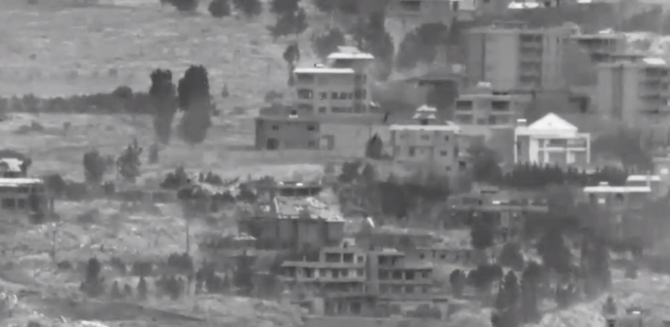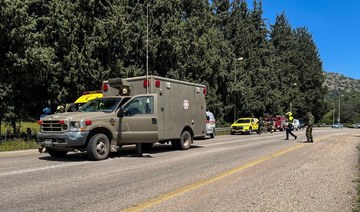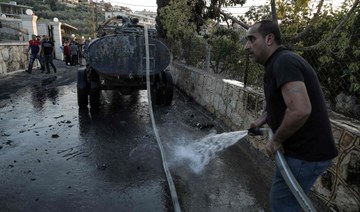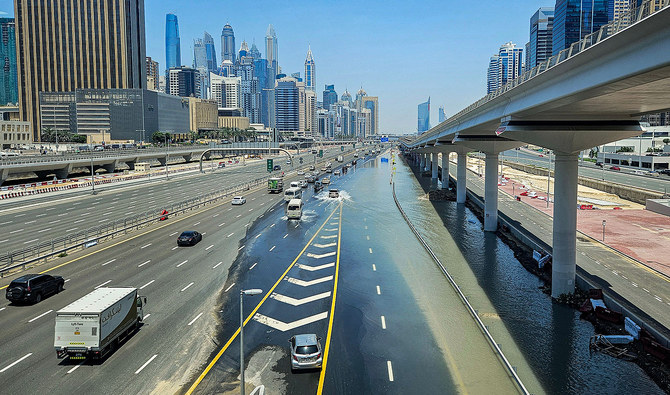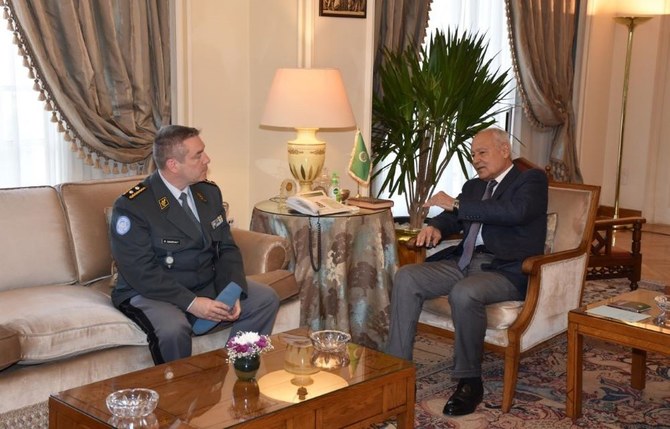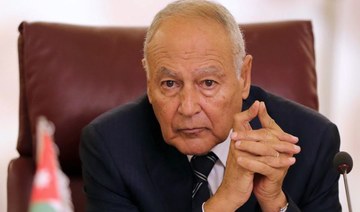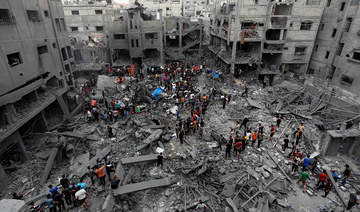RAMALLAH: The UN voiced deep concern at the worsening violence between Israel and the Palestinians, as clashes erupted again at Jerusalem’s flashpoint Al-Aqsa Mosque compound on Friday.
“We are deeply concerned by the escalating violence in the occupied Palestinian territory and Israel over the past month,” said Ravina Shamdasani, spokeswoman for the UN Office of the High Commissioner for Human Rights.
Palestinian medics said at least 57 Palestinians were injured in clashes with Israeli police at the compound on Friday.
People were injured by rubber-coated metal bullets, along with dozens of cases of suffocation, during a raid by Israeli security forces.
The Palestinian Red Crescent Society in Jerusalem earlier reported that its crews dealt with 31 injuries caused by rubber-coated metal bullets, including two serious injuries.
The Israeli police arrested a young man with bullet wounds from the mosque’s courtyard, restricting access to the mosque for worshippers.
Nearly 150,000 Palestinians performed the third and penultimate Friday prayer of Ramadan at Al-Aqsa, despite the restrictions imposed on the checkpoints at the entrances to Jerusalem and in the city’s streets.
Sheikh Omar Al-Kiswani, director of Al-Aqsa Mosque, said that tens of thousands were able to arrive and perform Friday prayers, despite the violence at the compound.
“We expected that the number of worshipers on the third Friday of Ramadan would reach more than 300,000, but the Israeli restrictions and barriers prevented that,” he told Arabs News.
The Israeli authorities had imposed a strict security closure on the Palestinian Territories from April 21-23, which prevented Palestinians from entering Israel, even with permits, but relented for those over the age of 50 and with permits ahead of Friday prayers.
Dozens of citizens, including women and children, were suffocated after tear gas canisters were fired at the mosque compound from Israeli drones.
The Israeli Channel 12 reported that a high-level Israeli-Jordanian meeting would be held after Ramadan to discuss the situation.
The police deployed 3,000 personnel in and around the Old City of Jerusalem and the surrounding streets leading to the mosque in anticipation of trouble. The Israeli government has also indicated that it intends to stop Jewish visits to Al-Aqsa Mosque from Friday until the end of Ramadan.
“The Israeli authorities informed us officially through Jordanian channels that Jewish visits to Al-Aqsa would be stopped until the end of Eid Al-Fitr on May 7,” Al-Kiswani confirmed to Arab News.
The continuation of Israeli security operations at Al-Aqsa has posed problems for Israeli Prime Minister Naftali Bennett’s coalition government.
On April 17, the United Arab List suspended its participation in the coalition in protest against Israeli security operations during the second weekend of Ramadan, coinciding with Passover.
Intensified operations at the Al-Aqsa compound throughout Ramadan and potentially during the Nakba and Jerusalem Day commemorations on May 15 and 28-29 will further pressure the list to consider permanent withdrawal, precipitating the collapse of the coalition, which lost its majority after Idit Silman’s resignation on April 6.
The Palestinians believe Bennet’s government has demonstrated that its policy is based on accepting the temporal division of Al-Aqsa Mosque between Muslims and Jews, as happened previously with the Ibrahimi Mosque in Hebron.
Given the importance and sensitivity of the issue of Al-Aqsa Mosque, it would be embarrassing for Ra’am party leader Mansour Abbas to remain in a government responsible for such a division, given his faction’s opposition to it.
Many of the 1.5 million Palestinians who hold Israeli citizenship believe Abbas has fallen victim to a political trap by Bennett.
May 8 will be the real test after the Knesset returns from its holiday, and it seems Bennett is not confident of his coalition’s survival.
Political experts believe the coalition may collapse in the second half of May.
Israeli and Arab political affairs expert Mohammed Darawsheh told Arab News that Bennett’s “right-wing positions were known to us before, but his extreme right-wing performance surprised us a lot, as he tries to restore his legitimacy in the Israeli right-wing frameworks.”
Bennett’s policies, especially toward the Arabs and Al-Aqsa Mosque, have put Abbas in a difficult place.
At the same time, many Palestinians believe Abbas’s response is late, arguing that if he had had a political vision, he would have set clear limits for Bennett before things escalated.
Darawsheh said: “Abbas is in a bad situation and needs a miracle to save him, and suspension of his participation in the Knesset is not a political maneuver but rather an attempt to delay the government’s fall. But Abbas’s stay in the government would constitute suicide for him and the movement that supports him.
“Abbas entered the government at an economic price without even asking for the legislation of an equality law or amending or cancelling the racist national law. However, he did not achieve any economic achievement,” he added.
“Abbas thought that Arab society would accept an equation of money in exchange for dignity, but he learned a harsh lesson when he realized that the Arab society belongs to his national cause more than he belongs to his pocket.”
In a statement by the spokesperson for the UNHCR on the situation obtained by Arab News on Friday, deep concerns were raised about the escalating violence in the occupied Palestinian territory and Israel over the past month.
“Last weekend saw Israeli security forces injure around 180 Palestinians, including at least 27 children, during tensions in the Al-Aqsa Mosque compound. The witnessed conduct of Israeli security forces on April 15, captured in numerous videos, raises serious concerns that the use of force was widespread, unnecessary, and indiscriminate,” it said.
“Several Palestinians, including elderly, women, children and at least one journalist, did not appear to pose any threat to the Israeli security forces in any manner.
“The use of force in law enforcement operations is strictly limited and governed by international norms and standards. The use of force by Israeli police resulting in widespread injuries among worshippers and staff in and around the Al-Aqsa Mosque compound must be promptly, impartially, independently and transparently investigated.
“Those responsible for any violations should be held to account, and policies and procedures on using force reviewed to avoid any further violations. The tension in Jerusalem has impacted other areas as between April 18-21, Palestinian armed groups launched six rockets and one mortar shell toward Israel.”




